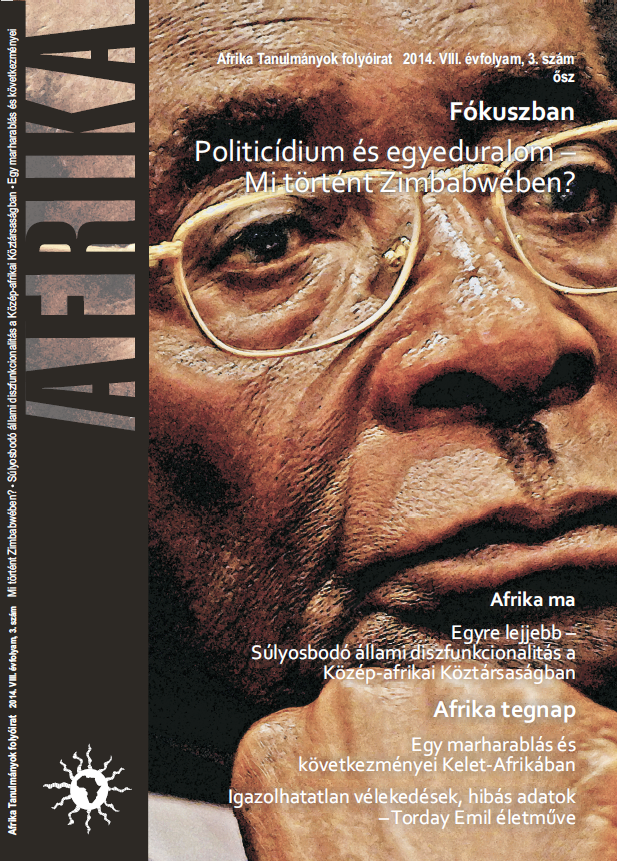Politicide and Monocracy – What Happened in Zimbabwe?
Keywords:
Genocide, Politicide, Zimbabwe, Operation GukurahundiAbstract
Politicide is a less examined phenomenon than genocide, though Harff and Gurr showed that it is more frequent. Accurate identification of former episodes of genocides and politicides is necessary in order to prevent upcoming events and to understand their mechanism. This study looks at Operation Gukurahundi, an episode of mass murder in Zimbabwe during the 1980s. This not welldocumented era of the newly elected independent government is rarely mentioned in international research papers and is usually qualified as genocide. The paper emphasizes that there is a significant difference between genocide and politicide and identifies the case of Operation Gukurahundi as an example for repressive/hegemonial politicide (based on Harff and Gurr’s early typology from 1988). It also elaborates on the fact that this Operation was not a deliberate attack against Ndebele people, however, it was a strategic attack on supporters and representatives of the oppositional party, ZAPU. It raises awareness that the ever since governing ZANU-PF and its leader, Robert Mugabe has never been sentenced for committing crimes against their own people. Leaving mass murders without sanctions can contribute to the repetition of such crimes – see Operation Murambatsvina, for example.
Downloads
Published
How to Cite
Issue
Section
License

This work is licensed under a Creative Commons Attribution-NonCommercial-NoDerivatives 4.0 International License.
















